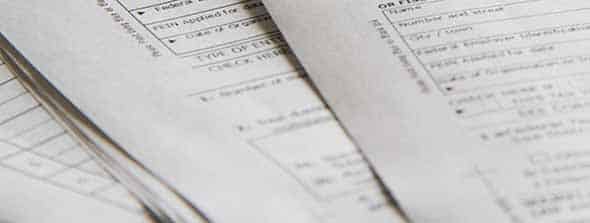Property Tax Appraisal: How You Property is Appraised
A state property tax board assures a fair, equal taxing policies and practices. A state property tax board review hears taxpayers’ appeals, and the process for implementing the property tax code. The single appraisal district appraises property in each county for ad valorem (according to value) tax, eliminating duplicate staff and varying property values set by different taxing jurisdictions. Therefore, it provides a fairer, more efficient and effective means to meet constitutional and statutory requirements of property taxation.
Find Government Finance Jobs
Find Government Finance Jobs on GovtJobs.com today!
How Property Tax Appraisal Works:
The single appraisal board for the county, provides fair, uniform values on taxable properties in the county. A chief appraiser and an appraisal review board and approves the chief appraiser’s budget. Members are often appointed to by a vote of the governing bodies of incorporated cities and towns, and the school districts that make up the district. Members of the board cannot be elected officials of the county or its cities.
The chief appraiser implements the board’s equalization assessment policies, operates the appraisal office, and prepares a proposed budget each year for operation of the district.
The appraisal district is where a citizen must appeal any values set on property. This board reviews the decisions made by the chief appraiser and board, and has the authority to overrule them.
City councils’ primary duty is policymaking, and therefore, it sets the city tax rate. The City Council has the authority to levy and collect ad valorem taxes on all taxable property within the city limits.
Frequently Asked Question:
Q: What are ad valorem taxes?
A : Ad valorem, latin for “according to value,” is the tax assessed on the value of property. Local property taxes, governed by state law, provide funds for city government, along with sales tax, fees and other sources. These dollars provide city streets, police and fire protection, and many other services.
Q: How is the city tax rate set?
A: Once values on property have been set, the city must decide what level of services it will provide in the coming year and adopt a tax rate to finance those services. For instance, if it is determined that $100,000 is needed in property taxes and there is $100,000,000 of property in the city, the City Council will set a tax rate of $1 for every $100 of property evaluation. Public hearings are held before the tax rat is adopted.
Q: What guidelines are used to appraise property?
A: Different types of property must be appraised on an equal basis and similar property must be appraised uniformly. In this way, all property owners will pay their fair share of taxes. Property is appraised at market value – the value representing the cash price it would bring if sold. Often times, land used for farming or ranching is appraised on a productivity valuation, that is, the ability of the land to produce crops or livestock.
Q; If I feel my property appraisal is too high, how do I protest?
A : If you believe the appraisal is higher than market value, ask for a copy of the appraisal records on your property. If the property description is incorrect, discuss your protest with the county appriser before you appear before the review board. If the information is correct, obtain evidence of recent sales of similar property in your neighborhood to prove your home was evaluated unfairly. File a notice of protest before July 1 or no later than 30 days after you receive your appraisal, whichever date is later. If the dispute is not solved, a hearing will be scheduled.
Q: Can I give my opinion of what I think my property is worth?
A: Tax authorities use property reports called renditions to compile a list of taxable property in the county. A rendition contains your name and address, describes your property and gives its location. Homeowners may place their opinion of the property’s worth on that form if they desire.
Q: What is a homestead exemption?
A: A homestead is a house and yard used by the owner as the principal residence. Condominiums, townhomes and mobile homes may qualify as homesteads. A homestead exemption must be applied for by the homeowner to exempt a portion of the property value from taxation. Other exemptions are sometimes available for homeowners 65 or older and for disabled homeowners. A homestead exemption can include exemptions from the city, county and/or school district and be for up to 30 percent of the home’s appraised value.
Q: What happens if I don’t pay my property taxes?
A: Taxes unpaid are delinquent and penalties and interest begin to compile. Nonpayment ultimately can lead to lawsuits, seizure and sale of the property. The homeowner is responsible for making sure the property owned is listed correctly on the tax records, along with the correct name and address. Even if the tax collector can’t deliver a tax bill because of incorrect name or address, state law makes the owner responsible for all taxes, penalties and interest for late payments. If the mortgage company pays the property taxes through an escrow account, it will receive the tax bill if it is requested.
Q: Who is exempt from property taxes?
A : The federal government doesn’t pay taxes on its property. State and local governments don’t pay taxes on property for public use. Property owned by churches, private schools, youth groups, charitable organizations and cemeteries is exempt from taxation if it meets state law requirements . Partial exemptions are available for disabled veterans or survivors of members of the armed forces killed in active duty, and for property using solar or wind power for energy.






